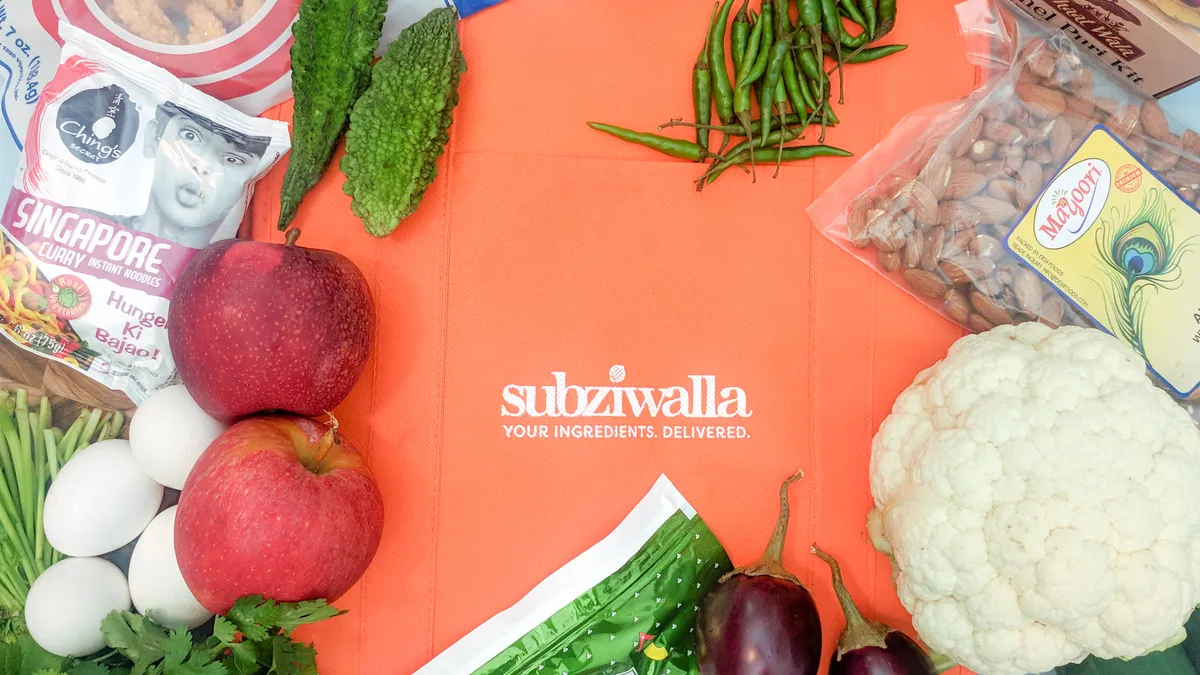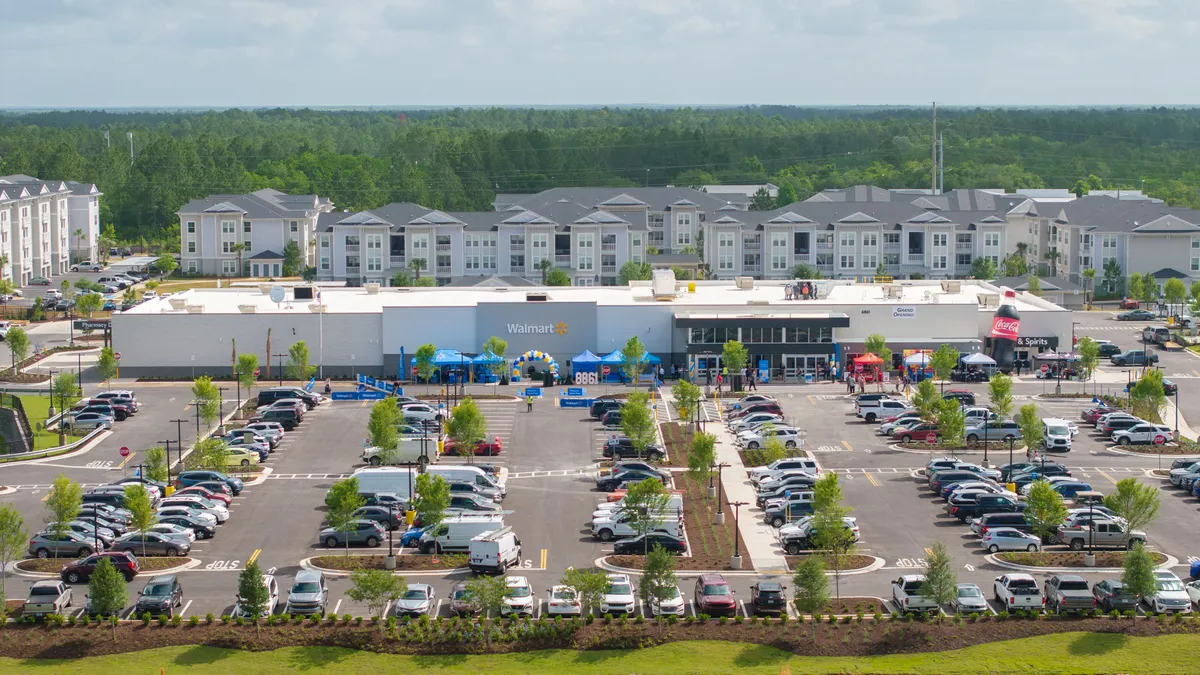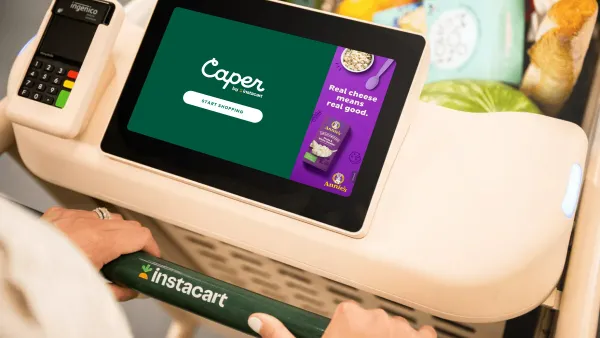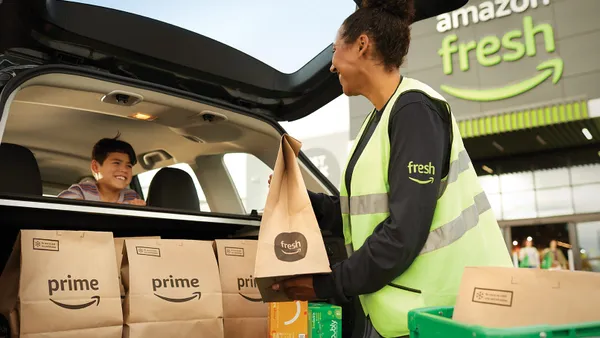Dive Brief:
- Indian e-grocer Subziwalla is now shipping orders nationwide to meet elevated demand during the COVID-19 pandemic, the company told Grocery Dive.
- Launched in 2018, Subziwalla offers more than 4,000 fresh, frozen and shelf-stable items like chapati, rose petal ice cream and mustard oil to shoppers in Atlanta and Charlotte, North Carolina. Last month, the company began making most items available to shoppers in every state in the continental U.S. besides California.
- Shoppers outside of the Atlanta and Charlotte areas have access to around 75% of Subziwalla’s assortment, with fresh and frozen items excluded due to shipping restrictions. Each order carries a $15 flat shipping fee and typically arrives within one week.
Dive Insight:
Like many online grocery providers, Subziwalla has benefited from surging demand during the pandemic. But unlike many sites that have already started to see shoppers drift back to stores and migrate to other online providers, Subziwalla has been able to lock in its shoppers, founders Sajal Rohatgi and Manav Thaker told Grocery Dive.
The company serves a mostly affluent, educated clientele, including many elderly customers and individuals who work in the technology and research fields, who say they don’t intend to visit physical stores anytime soon, the founders said. Indian grocery stores that carry a comparable assortment tend to be small and can get very crowded during peak shopping times, they noted. Subziwalla’s platform is also much more polished than its competitors, many of which run outdated websites.
“We picked up a lot of customers who were habitual physical grocery store shoppers,” Thaker said.
Subziwalla started in the Atlanta area, the product of two acquaintances who saw an opportunity to deliver hard-to-find items to the homes of Indian-Americans — a demographic with high spending power that has more than doubled over the past two decades. Service was gradually expanding beyond Atlanta into nearby towns like Athens and Peachtree City, and early this year the company expanded to serve the Charlotte area.
Subziwalla had targeted a full-service expansion to New York City next, and Rohatgi even moved to the area to begin setting up fulfillment operations. Then, beginning in March, orders began flooding in across their service area. Thaker and Rohatgi hired more fulfillment workers, including laid off restaurant workers, who worked in three shifts as the warehouse stayed open 24 hours a day. They also hired customer service representatives to help new shoppers navigate the service. Many customers were used to paying cash upon delivery, for example, and needed guidance on how to load their credit card information into the system.
At peak demand, Subziwalla’s average order size grew from $80 to more than $200. It has moderated since then, but remains elevated at around $120.
Something else happened, too: The company began getting delivery requests from across the U.S. The two founders hadn’t planned on going national for at least another two years. But they happily scrapped that timeline and in June began shipping orders across the U.S. for a flat $15 fee.
The company has managed to grow with almost no marketing budget, relying mainly on word of mouth and Google searches. But supply challenges have cut into the company’s bottom line. Subziwalla imports around 70% of its products from India, which has charged more for exports due to shipping restrictions as it battles its own COVID-19 outbreak. The company has tried to absorb those costs and keep prices steady in order to acquire customers, but Rohatgi, who manages Subziwalla’s supply operations, said it has been a challenge.
For all the frustration and economic damage the pandemic has incurred, the pandemic has also breathed life into many online grocery startups. Thaker and Rohatgi said they’re closely tracking customer data and will use that to determine the next markets where they can build warehouses and offer next-day and even same-day, full-assortment delivery. The company also still plans to open in the New York City area in the near future.
“We want to see where all of our traffic is coming from,” Thaker said. “We want to watch and iterate as the data comes in.”














